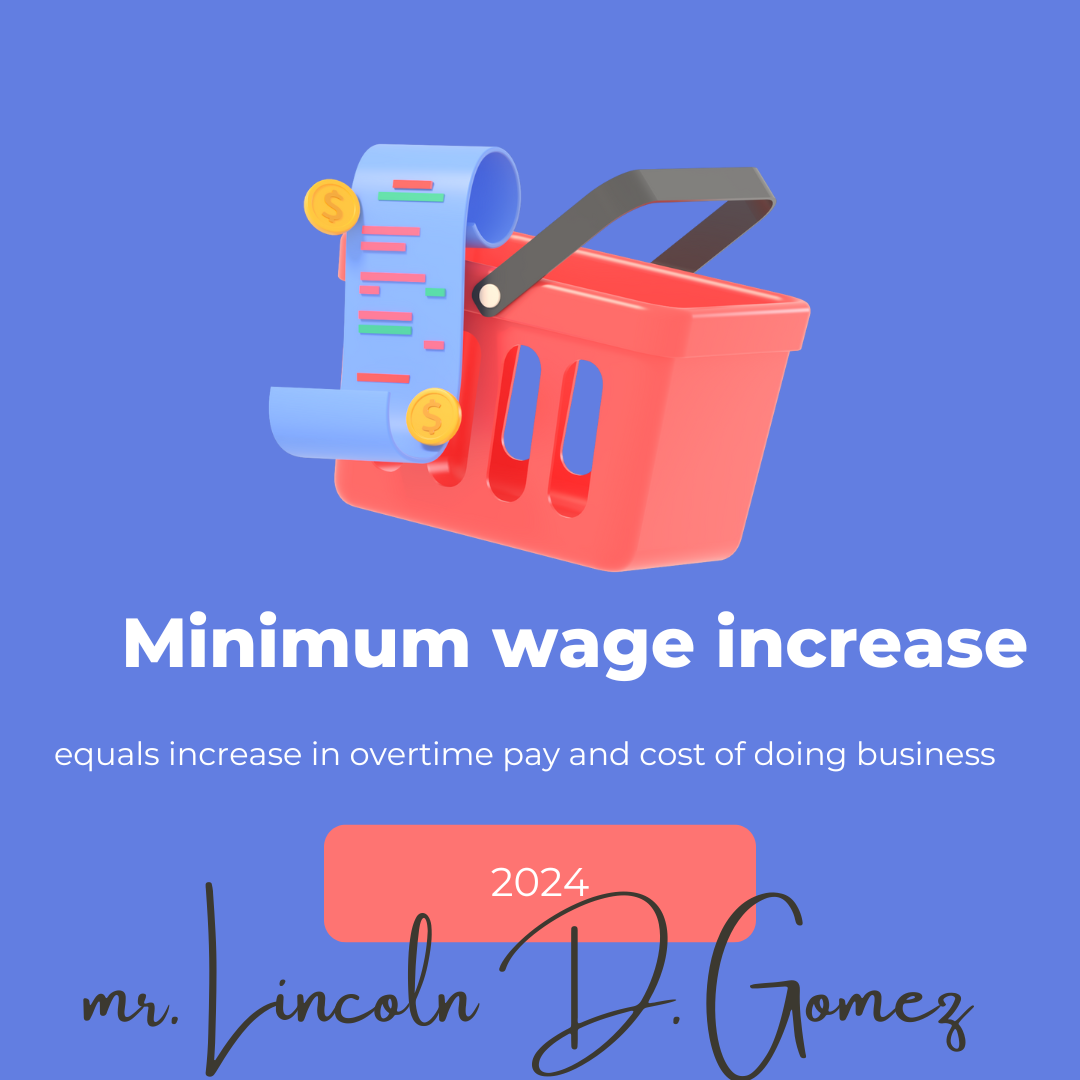Understanding the Impact of Minimum Wage Increases: 2023 and 2024
The Minister of Labor has announced a minimum wage increase for 2024. This announcement closely follows my column/newsletter from December 2022, which highlighted the wage hike set for 2023. My partner Bryan Coffie also covered this. These successive years of wage modifications represent a noteworthy shift, particularly in 2024, featuring a more substantial percentage increase.
2023 Minimum Wage Increase
Effective January 1st, 2022, the minimum wage saw an increase from Afl. 1,815.35 per month to Afl. 1,893.41 per month, representing a 4.3% increase, translating to an additional Afl. 92.59 in monthly earnings for minimum wage workers
2024 Minimum Wage Increase
Looking ahead to January 1st, 2024, another wage adjustment is on the horizon. The Minister’s advisory council suggests an approximate 4.9% increase over the 2023 minimum wage, which will be Afl. 1,986.20 per month.
Impact on Overtime Pay Threshold
Note that these wage hikes also influence the overtime pay threshold. Most employees already earn above the minimum wage threshold, but the increase pushes the overall cost for the businesses even higher as this increases the threshold for overtime pay. The impact can be seen below as the overtime threshold is determined by multiplying the minimum wage times 2.5:
2022: Afl. 1,815.35 x 2.5 = Afl. 4,538.382
2023: Afl. 1,893.41 x 2.5 = Afl. 4,733,53
2024: Afl. 1,986.20 x 2.5 = Afl. 4,965.50
For businesses, especially those in the hotel, restaurant, wholesale, retail, and service sectors, where many employees exceed the minimum wage threshold, this will increase the overall labor costs due to increased overtime pay.
Labor Shortage and Inflation Concerns
In addition to these wage adjustments, our island is currently grappling with a labor shortage in various sectors. This labor scarcity and rising labor costs due to minimum wage hikes will likely drive up the overall cost of doing business. Businesses may need to offer higher wages to attract and retain employees, leading to increased operational expenses. These additional costs are (often) passed on to consumers through higher prices for goods and services. Consequently, this can contribute to inflationary pressures in our economy. This increase is amid the increases of, among other things, the BBO in 2023, increased cost of fuel and utilities, and shipping rates.
Conclusion
These consecutive years of minimum wage adjustments reflect the government’s commitment to improving the economic well-being of our workforce. While these increases are welcome news for a (small) group of minimum wage earners, businesses in sectors with higher wage scales should prepare for potential cost implications, including elevated overtime expenses. The labor shortage adds a layer of complexity, potentially impacting business costs and contributing to inflation. Understanding and planning for these changes is essential for maintaining financial stability and competitiveness in the evolving labor market and economic landscape.
December 18th, 2023
















